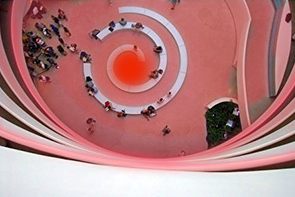
You might think of the standard Haydn symphony as measured and placid, but not the 52nd. It’s unusual in that it’s in a minor key and has numerous tumultuous passages designed to stir the emotions, even fear, among listeners of the time. The concerto, by contrast, is less agitated, but completely in tune with our “Age of Anxiety.” Not excessively dissonant, and even tuneful in the last movement, the work offers ingeniously unsettling triadic harmonies that descend into despair in the profound second movement, at times accompanied by unpredictable, convulsive throbs. Its offbeat rhythms will be a challenge to the orchestra and soloist alike. Fortunately, one of the best contemporary players around — Leila Josefowicz — will be tackling its soaring lines and passionate declamation.
After a few welcome drinks at intermission, try to remember the sound, not of the preceding Adès work, but of the Haydn. The ensuing Mozart will make even the Haydn sound like darkest night in comparison. It’s not just the more memorable melodies and lighter disposition of the music. Listen carefully to the woodwinds: The Haydn symphony has no flutes or clarinets in it, and its oboes hardly play anything but chords. When you hear the flutes and clarinets play gorgeous melodies in the Mozart, you’ll realize that despite what Haydn and Adès say, there is hope for civilization.
James Gaffigan, who will be conducting, will give extended remarks on the works for the Friday, April 3 concert, and an after-concert Q&A session Saturday, April 4.

![gaffigan.headshot[margaretKmitchell].jpg](/sites/default/files/styles/floated_content_270x/public/media/unsorted/gaffigan.headshot%5BmargaretKmitchell%5D.jpg?itok=sdfvzvzD)